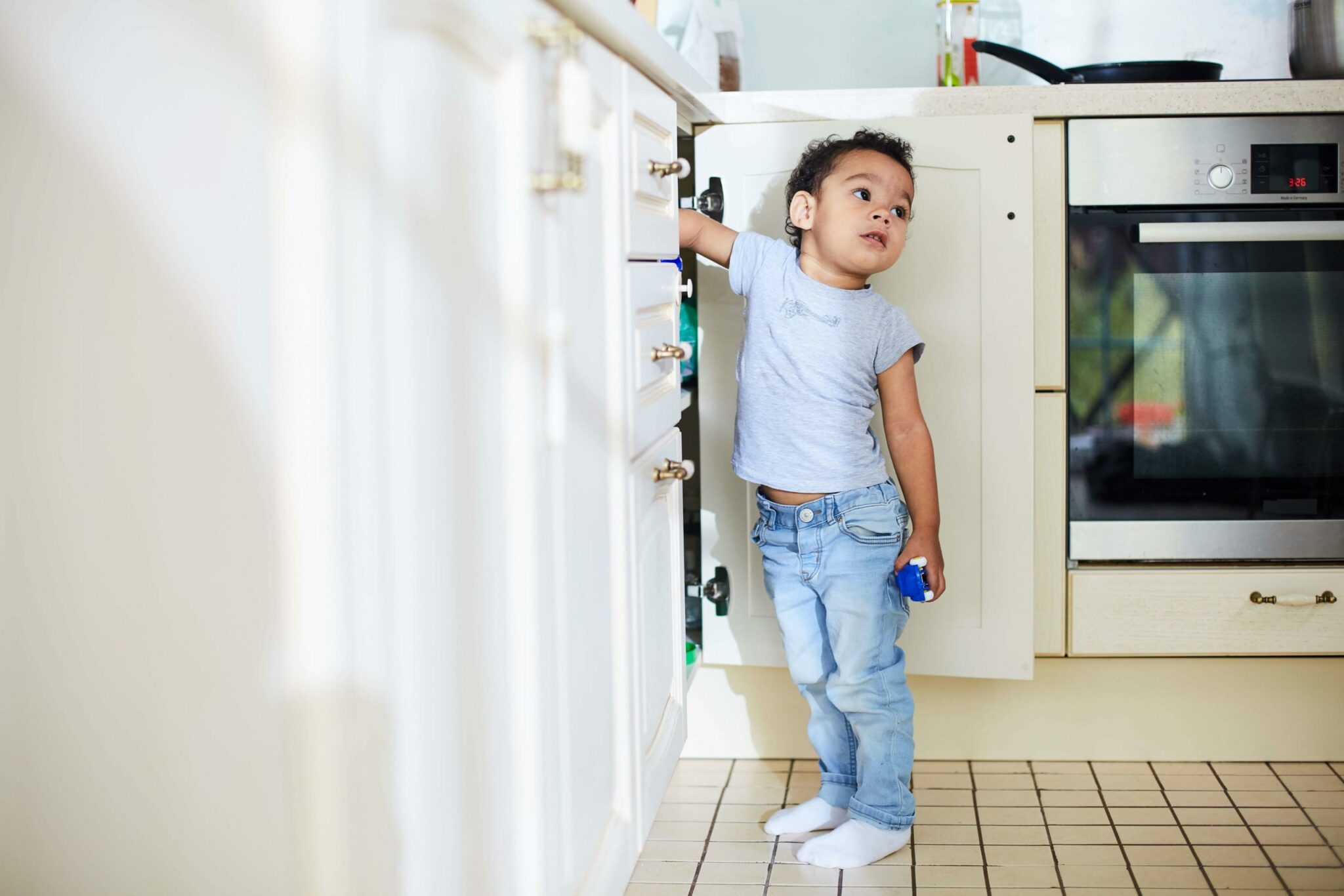7 Kitchen Hacks to Keep Your Children Safe


Kitchens are often the center of a house—they are the most heavily traveled room in most homes, where family members gather to eat, prepare food, and just hang out. Kitchens are also one of the most dangerous rooms in your house for a toddler. Here are a few tips that can help keep your kitchen safe:
- Separate dangerous instruments from “safe” utensils. Knives, forks, and scissors, for instance, should be kept in a childproofed drawer. Glassware (such as casserole dishes) and sharp cutting appliances/tools (such as graters and food processors) should be kept out of reach as well.
- Lock away cleaners, dishwashing soap, polish and other products that can poison your child in a cabinet that is out of reach and out of view. If dangerous items must be stored below the sink, lock them with a child safety lock. The cabinet should lock automatically when the door is closed.
- Keep containers that hold food separate from those that hold dangerous substances. Be consistent in using the same containers for food. Label any containers that are used for non-food items so there is not confusion.
- Keep appliances unplugged when they’re not being used so a child cannot turn them on. Fold away the electrical cords. Children will tug on dangling cords, which can pull an appliance off the counter. Electrical outlets throughout the house should be plugged with a safety cap when not in use.
- Keep oven doors closed. In addition, ovens should be well insulated to protect from the heat if touched. Use child-resistant knob covers to prevent your child from playing with the stove.
- When cooking, pot handles should always be turned to the back of the stove to reduce the risk of scalding injuries. Children also love to run under foot, so be aware of where they are when you’re carrying hot liquids.
- Avoid small refrigerator magnets. Children can choke or swallow them, which can cause serious injury due their digestive systems.
Some experts recommend keeping small children out of the kitchen entirely by installing safety gates at the entrance to the room. If a mobile child is in the room while you are cooking, consider setting them up for some playtime in their highchair so that they can participate without being in your way.
Practice food-handling safety as well. Always wash hands before and after touching raw meat, poultry, egg or fish products to prevent bacterial infection. Additionally, wear oven mitts to (not dish towels) when holding hot pans, pots or baking. Turn off the stove immediately when your food is prepared and check that all appliances are off before leaving the kitchen.
Sources:
- HealthyKids.org. Kitchen Safety.
Powered by Bundoo®










































